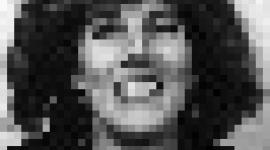'Body Image' Conference with Carolyn Costin
Bob M: Good evening everyone. Our topic tonight is BODY IMAGE. We are going to be discussing the psychology of body image and why some people have positive one's and others have a negative image. And then, our guest will tell us how we can work towards developing a more positive image of our bodies and ourselves. I'm Bob McMillan, the moderator for tonight's conference. Our guest is Carolyn Costin. Carolyn is the Director of the Monte Nido Treatment Center in California. She has also written several books on the subject of eating disorders. Good evening Carolyn and welcome to the Concerned Counseling website. We appreciate you being our guest tonight. Can you please tell us a bit more about your expertise?
Carolyn Costin: Good evening. Thank you for having me. I have been an eating disorder therapist for approximately 20 years and I am also a recovered anorexic. I have developed and implemented 5 treatment programs, most currently my six-bed residential program in Malibu.
Bob M: Just so we are all on the same track tonight, can you please define "body image" for us?
Carolyn Costin: Body image refers to the body as a psychological experience and focuses on the individual's feelings and attitudes towards their body.
Bob M: I hear all the time that poor body image can lead to an eating disorder. What I want to address tonight is: what creates a poor body image?
Carolyn Costin: There are a variety of causes. We first look at how a person's caregivers treated their body when growing up. For example, was the person attended physically, were they touched, what comments were made about their body, all the way to were they neglected. Then we have cultural issues such as our current "thin is in" society where women are portrayed as unrealistically thin in the media. It is a complicated issue.
Bob M: It is. What I want to do is try and break it down into components, if we can? At what age does a person begin to take notice of their bodies? And at what point does it begin to have an impact on their self-image?
Carolyn Costin: Let's start with the components. We can break down body image into 3 separate aspects. There is perception, attitude, and behavior. Perception is what the person sees when they look at their body. Attitude is their feelings about what they see, and behavior is what they do about their attitude. From birth, babies take notice of their bodies. In fact, this is the way they begin to formulate a separate sense of self.
Bob M: Are you born with a positive body image and then it changes because of external or environmental factors?
Carolyn Costin: That sounds like a good way to describe it, but perhaps it is better to say we are born with a neutral body image and our experiences begin to shape how positive or negative our body image will be.
Bob M: Our topic tonight is BODY IMAGE. For those just joining us, our guest is Carolyn Costin, director of the Monte Nido Eating Disorders Treatment Center in California (Eating Disorders Treatment Centers). I know that many of you in the audience have eating disorders, but we are limiting tonight's conference to Body Image and related questions. Here are a few audience questions Carolyn:
Mick31: How can we change our body image from negative to positive?
Carolyn Costin: First of all, it depends on the roots of the negative body image. For example, if someone grew up in a family with poor boundaries, they may have developed a need to over-control their body. For example, what goes in and what goes out (food/exercise). However, one can begin to focus on what the body does that is positive. For example, I often have clients make a list of the positive things about having a body, or interview their bodies. This begins to reconnect them to owning and appreciating that they have a body. Usually people need to work with someone as this can be very difficult. Traditional body image assignments given to patients such as draw your body, often don't work because they re-enforce our focus on the body's appearance.
Bob M: How is it that a person develops a "warped" sense of their own body? For instance, someone with anorexia, who is very thin, sees and thinks of themselves as being fat.
Carolyn Costin: In anorexia nervosa, body image disturbance increases as the illness progresses. It usually begins when the person feels that their body is too big compared to some standard ideal. We also think that there may be a genetic predisposition in some individuals which causes them to have perceptual distortion. Lastly, it seems that nutritional deficiencies may contribute to body image disturbance. It often appears that the thinner these girls get, the fatter they feel.
Ayah: What is a positive body image? Accepting myself as I am? It's kind of an abstract concept to a lot of us I think.
Carolyn Costin: Yes, I agree it is a very abstract concept. What I try to do in my work is to help people to commit to not doing anything destructive in order to have a "better body." I think it is hard in this society to accept our bodies as we are always told by the media through advertisements and fashion models that we are not good enough. It's one thing to try to improve our bodies in a healthy way, but it is very important not to ever put our health and well-being in jeopardy just to look a certain way.
Celina: How do we view ourselves in a better light, when in reality I'm disgustingly fat!!
Carolyn Costin: The interesting part here is the word: "disgusting". Who told you, or who decides, that one size is disgusting and another size is attractive or ideal? If you want to change your body, and you can do it in a healthy way, for example, increased activity, than that would be fine.
|
|
Froggle08: Carolyn, you are saying why we feel this way and medical explanations, but how do we stop these things? How is one not to feel negative about their bodies when they hear that they are fat?
Carolyn Costin: I admit it is hard. People are in treatment for this. I will not be able to tell you over the internet, but I can make some suggestions. For example, a very good book is When Women Stop Hating Their Bodies. This would be good for men and women to read. You may need to seek professional help. Also, try to find an activity that you enjoy doing where you use your body.
Bob M: Here are a few audience comments:
metaphorical eyeball: How can you change the minds of young girls like myself, when the media is always in our face about losing weight and being the thinnest?
Con: I am not sure if what I have is poor body image or not. I was abused, sexually, as a child and I hate how my body reacted and it seems that hate is so deep within me. I am anorexic and I seem to always be trying to get rid of my body which betrayed me.
JoO: I think what you are telling us is that we have a body. Some of us have become victims of what society tells us is about the kind/shape of body we should have. We have forgotten to look at the people/person we are. What we should be focusing on is the person we are inside and just being the best we can. Keeping up positive attitudes and not going for what everybody else calls normal. BUT -- so saying -- this is hard to do and I would say the problems have to be dealt with first. Does any of this make any sense?
Joan: Carolyn -- you are talking that anorexia body image increases as the illness progresses....I sincerely believe that ALL eating disorders increase, whether it be a perceived weight problem or an actual weight problem. Emotional pain is emotional pain.
Avalon: Even with professional help, it does not help when it's people that are the cause of the problem. When your jeans are not the size that they want for them to be.
Carolyn Costin: I tell all my clients not to buy fashion magazines or any other magazine that only shows thin bodies. Support magazines like "Mode." This is a very good magazine showing bodies of all sizes. Please write to television shows and magazines and tell them how you are affected by seeing only thin bodies. Body image dissatisfaction is rampant in our society. We have 80% of fourth grade girls going on diets and about 11% have used self-induced vomiting. I think we need to start with children very young. We need to focus on their souls and spirits, not their bodies. We need to help children and each other to focus on internal instead of external qualities. This is why I wrote the book, Your Dieting Daughter.
Bob M: But what about professional treatment...is that what it takes to correct a poor body image, or can someone work through that on their own?
Carolyn Costin: Depending on how severe the body image disturbance is, professional help may or may not be required (eating disorders treatment). If it is affecting your behavior, for example, inadequate nutritional intake, vomiting, taking laxatives, or other self-destructive behaviors, you should seek professional help. In some cases, self-help books, participating in sports, and increasing self-esteem in other areas might be enough.
Bob M: Here are a few audience comments, then more questions:
Fazz: Feeling this hate towards the body is so ingrained by our system that it becomes a reflex action. It's then very tough to overcome.
Suey: That's easy to say. Teach the kids when they're young, but it goes so much deeper than just physical looks!!
Freestyle: I think a person can work through it a lot on his/her own. The truth sets you free, no matter where you find it or who points it out. There are some really good books on the market now too to help.
tennis me: What are we supposed to say to our kids so we do not recreate another generation of people with poor body image and eating disorders?
Carolyn Costin: Time is too limited to tell you everything to say, and I want to be helpful, so I'll refer you to some very good books on the subject. Making Peace with Food, by Susan Kano, How to Get Your Kid to Eat But Not too Much, by Ellen Satter, Father Hunger, by Margo Maine, and my book, Your Dieting Daughter, will also help. In addition, it is important for parents to avoid making negative comments about their own bodies, or judgments about other people's bodies in front of their children. I do not think parents should keep scales in their homes. If a child seems to have a problem with being overweight, make sure to focus on health, not looks. Point out to children role models in all shapes and sizes.
Freestyle: I tell my daughters that so much of what society teaches is just plain false. Being thin, in and of itself, won't make you happy. It won't make them rich. It won't find them Mr. Right. It won't get them a perfect job. I try to point them in the direction that will get them these things: being kind and fun-loving and getting an education and caring about others.
macbethany: My mother always praised my good looks and that made me feel very uncomfortable. I was so self-conscious growing up (am 24 now). I also feel she used to stare at my body as I developed. Could this be why I have a bad body-image?
EDSites: Do you feel that the "all or nothing" thinking plays a part in how a person will view themselves? For me, if I fail at something it tends to turn into how I feel about myself physically. How can one change that?
Carolyn Costin: People often turn real feelings into feelings about their body because the body seems easier to control. I ask people to write about any feelings they have prior to engaging in any disordered eating behavior.
Bob M: The Monte Nido Treatment Center is in California. Here is the site address for them: http://www.montenido.com. I know it's getting late Carolyn, so we will wrap it up. We all appreciate you being here tonight. Thank you for coming and being our guest.
Carolyn Costin: This is a tough topic, but I want everyone to know that they can get better if they suffer from a body image problem. It took me a few years, and it may take more time for others, but you can reach a point where what you weigh, or what you look like, is not more important than who you are. Thank you, Bob.
Bob M: Good Night everyone.
|
|
APA Reference
Gluck, S.
(2007, February 26). 'Body Image' Conference with Carolyn Costin, HealthyPlace. Retrieved
on 2026, March 3 from https://www.healthyplace.com/eating-disorders/transcripts/body-image-conference




